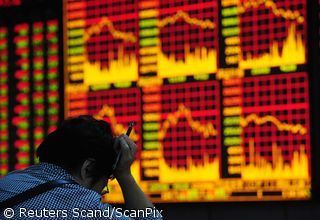Protests against fuel prices blocked highways across Europe Tuesday.
Published:
13 September 2000 y., Wednesday
Protests against fuel prices blocked highways across Europe Tuesday and as pumps ran dry in Britain Prime Minister Tony Blair vowed tough action to move supplies through blockades.
Hauliers furious at high prices and taxes promised more wildcat action across the continent. Protests began in Germany and more were likely in Spain and Ireland.
Although crude oil prices dropped more than $1.30 a barrel, oil traders warned that market fundamentals pointed to continuing high prices in spite of an OPEC pledge to increase production.
Panic buying swept Britain, draining the few remaining supplies of fuel. In the worst hit areas, rubbish went uncollected and hospitals canceled non-emergency services.
"Whatever the strength of feeling there can be no excuse whatever for this type of action which is hurting our people, businesses and emergency services severely," Blair told a news conference after cutting short a visit to northern England.
"Legitimate protest is one thing, trying to bring the country to a halt is quite another," he said, adding that he hoped the situation would be on the way back to normal within 24 hours.
The Organization of the Petroleum Exporting Countries decided Sunday to raise output by 800,000 barrels per day.
European Union foreign ministers said Tuesday that OPEC's latest output increase should help stabilize world oil prices. The bloc's transport ministers said they would meet next week to discuss the impact of high prices.
Šaltinis:
lycos.com
Copying, publishing, announcing any information from the News.lt portal without written permission of News.lt editorial office is prohibited.
The most popular articles
 European conference promotes regional solutions to global challenges.
more »
European conference promotes regional solutions to global challenges.
more »
 Iceland‘s low-fare airline Iceland Express will launch regular flights by the new-generation „Boeing 737-700“ planes to about 8 different destinations from Vinius International Airport.
more »
Iceland‘s low-fare airline Iceland Express will launch regular flights by the new-generation „Boeing 737-700“ planes to about 8 different destinations from Vinius International Airport.
more »
 Over 3 million people around the world have lost their jobs due to the financial crisis and, according to the UN, economic recovery is unlikely to reach those that have suffered most - poor women and children.
more »
Over 3 million people around the world have lost their jobs due to the financial crisis and, according to the UN, economic recovery is unlikely to reach those that have suffered most - poor women and children.
more »
 The European Commission has today decided not to raise any objections to the public financing of infrastructure developments at three Lithuanian airports – Vilnius, Kaunas and Palanga International Airports.
more »
The European Commission has today decided not to raise any objections to the public financing of infrastructure developments at three Lithuanian airports – Vilnius, Kaunas and Palanga International Airports.
more »
 The European Commission has published the results of a public consultation launched in June 2009 on whether and how deadlines should be set for the migration of existing national credit transfers and direct debits to the new Single Euro Payments Area (SEPA) payment instruments.
more »
The European Commission has published the results of a public consultation launched in June 2009 on whether and how deadlines should be set for the migration of existing national credit transfers and direct debits to the new Single Euro Payments Area (SEPA) payment instruments.
more »
 A favourable climate for innovation in the EU can speed up the transition to an eco-efficient economy and increase Europe’s global competitiveness.
more »
A favourable climate for innovation in the EU can speed up the transition to an eco-efficient economy and increase Europe’s global competitiveness.
more »
 The International Monetary Fund (IMF) and the Deutsche Bundesbank have signed an agreement to provide the Fund with up to the equivalent of €15 billion (about US$22 billion).
more »
The International Monetary Fund (IMF) and the Deutsche Bundesbank have signed an agreement to provide the Fund with up to the equivalent of €15 billion (about US$22 billion).
more »
 Today the European Central Bank is publishing a report entitled “Euro Money Market Survey 2009”, which illustrates the main developments in the euro money market in the second quarter of 2009, in comparison with the second quarter of 2008.
more »
Today the European Central Bank is publishing a report entitled “Euro Money Market Survey 2009”, which illustrates the main developments in the euro money market in the second quarter of 2009, in comparison with the second quarter of 2008.
more »
 New EU laws proposed for closer oversight of financial services industry, sending a strong signal to this week's G20 summit.
more »
New EU laws proposed for closer oversight of financial services industry, sending a strong signal to this week's G20 summit.
more »
 The European Commission has repeatedly underlined that the restructuring plan of new Opel Europe must guarantee that the company will be viable in the future.
more »
The European Commission has repeatedly underlined that the restructuring plan of new Opel Europe must guarantee that the company will be viable in the future.
more »